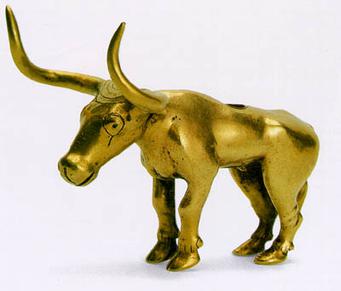I have a certain respect for Libertarianism that I lack for Conservatism, at least in its American form. Conservatism, like all political ideologies, is a rationalization for the interests of a particular constituency. But since Conservatism supports the interests of existing elites, it has a much tougher time articulating a coherent set of principles.
(unlabeled images from Wikimedia Commons)
REAL Libertarians (and I'm not speaking of Racism entrepreneur and anti-choice activist Ron Paul here) are the intellectual heirs to the minimal government, individual liberty thinkers of the 18th century that political scientists call "Classical Liberals".
They believe in maximum liberty. They don't want government doing anything except enforcing contracts, and they'd be happier if there was some way to outsource that function.
But if we start with their initial postulates, we see that the stated objective and intent of their proposed Utopia are to maximize individual liberty. This is a laudable goal...
if we can agree on a definition of "Liberty", and the desirability of maximizing it, and deciding how to reconcile the liberties of different individuals, and how to avoid the Hobbes Problem.
It's also clearly a normative judgement; it's based on the judge's individual preferences, and beliefs, and biases. This is not an ideal starting point from which to analyze human social behaviors. And the analysis of such behaviors must clearly inform any attempt to create social institutions, regardless of whether the goal is the maximization of individual liberty, or order, or prosperity, or any of the other metrics proposed by 2500 years of political theorists.
My preferred analytical starting point is cognitive/biological. Human beings are organisms attempting to survive and reproduce within an ecosystem. And while the nature of that ecosystem, and the adaptive behaviors necessary to succeed within it have changed radically since the last Ice Age, we remain what biological evolution made us: social primates adapted to hunting-gathering in small groups.
Human beings form dominance hierarchies in any group you place them. If you put 3 people in a room, one or more of them will behave as an alpha. In hunter-gatherer groups, the small size and intimacy of the group tends to keep the dominance hierarchy relatively egalitarian and informal.
But the adaptive behaviors required for human reproductive success have changed radically since the end of the Ice Age. The first new adaptive strategy came with the domestication of other social animals, and the eventual development of pastoralism as an alternative survival strategy to hunting-gathering.
Animals represent the very first form of wealth that didn't have to hauled around by you or your family. They could move livestock around under their own power. People could have more than they needed. People could be more than well-fed, they could be rich.
Herding is like anything else; some people are better at it than others, some people are luckier than others... the adoption of pastoralism created the first sharp, long-term differences in social status.
If you have a huge herd of cattle, and sheep, and goats, you can host an enormous Tony Soprano style barbecue for the entire tribe, and important people from the next tribe over, every time there's a funeral, or a wedding, or religious service. You can send the guests home with a week's worth of greasy leftovers. You can take the less fortunate some starter stock for a new herd, or food. You can reward your friends...
and you can punish your enemies.
(Okay, this image from Tony Soprano's Pizzeria. Not kidding)
So what I'm telling you is that by about 4000 BC we run into the first problem with the libertarian model. The effect of increasing inequality of circumstance, combined with human social dominance mechanics, are what lead to the earliest forms of the State which Libertarians seek to minimize or to eliminate. And I'm not guessing about this; we've got the archeological evidence for all of this.
(image from The World of Ancient Art site)
From the libertarian standpoint, things just get worse with the domestication of the Horse, and the invention of the Wheel. The quantum improvement in transportation technologies available to elites allowed them to exert their influence at greater distances. It increased the geographic range of their patron-client networks. Most importantly of all...
the world got bigger.
Transportation improvements brought together groups of previously isolated people, with different cultures and practices and life-styles. The difference between "us" and "them" got a lot sharper, as "they" became people who talked funny, and who dressed funny, and who didn't cover their dead with red ochre. These recently introduced neighbors traded. They intermarried. They raided each other, particularly for cattle. They competed, and that competition was lead by elites who increasingly were coming to resemble the State.
And the technologies kept improving. Around 3200 BC some nameless genius in Egypt invented the sail. Other geniuses started using the sail on ocean going vessels. The distances across which elites could exert influence kept getting bigger. As the distances got bigger, they included more people, and the patron-client network maintained by powerful men more elaborate and less egalitarian. Finally, ancient Sumeria took the next step in making the State inevitable.
The State, (which most people think of as "the government") has been with us one hell of a long time. It is the expression of social dominance behaviors applied to very large communities. Each new improvement in communications and transportation technology has created larger communities, and in every human community there will be elites and masses. The "nation-state" is a fairly new invention, but it is the logical outcome of a process which continues today.
The Libertarian preference for a minimal or even absent State fails to take into account why States exist in the first place. As long as there are people, and those people share membership in a community, you will have a State of some sort.
The history on this is irrefutable.










No comments:
Post a Comment